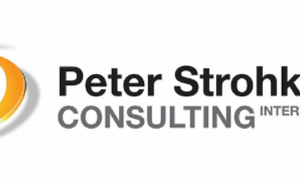You have probably heard that quote – “We have two ears and one mouth so that we can listen twice as much as we speak” Epictetus Greek Philosopher. There are many similar variations that have been around for over 2000 years. Have we learnt anything from this – probably not! We are still very eager to jump in before we actually listen to what is being asked or what is being said.
We often get the words Hearing and Listening mixed up and that is where we can get into trouble.
Hearing is what we do unconsciously. It’s passive; we don’t have to make an effort. Listening is a conscious act to understand what is being said. We are actively listening to make sense of what we have heard. Not only are we listening for the sound but we are concentrating to understand the meaning – we are listening for the actual message.
For example, when we wake in the morning we hear that beautiful chorus of birds singing but if we actually concentrate and listen carefully we can identify one bird song in the chorus.
Two things we need to add to our active listening are body language and voice. When we include these we are taking a big step to ensure that our communication is effective.
The Benefits of Active Listening
So what is the benefit of cultivating active listening skills? Listening helps us learn; it helps our language skills and helps to:
- Build relationships
- Resolve conflicts
- Understand
- Improve accuracy
Listening is an important component in your public speaking. Think about it- you need to listen carefully to the brief you are being given to speak. If you get this wrong it will really impact on your presentation and on whether you get rebooked or recommended. You need to listen carefully to the questions you ask about the audience – you need to know your audience to be able to present your message to connect with them. You need to listen to your audience – what questions are they asking – what comments are being aired. This will indicate if they are with you on the journey you are taking them. Do they get you? Do they get your message?
How Listening Can Help You
You need to listen to what you are saying. Are you structuring your message correctly? Are you connecting with your voice? Can they actually hear you? Listening is also a valuable tool for interviews. Not just job interviews but also when that journalist pops up and asks questions, when you make it to the interview at the radio station and the questions you are being asked aren’t the ones you gave them. When you are asked to share your expertise on TV and the interviewer is asking questions you never even thought of! Listen carefully to what is being asked to ensure that you answer the actual question – not what you thought you heard.
There are many benefits of good listening, but it does not come easy. Foster active listening. don’t get lazy and just hear the chorus concentrate and hear the unique individual sound.
Trish Springsteen
Speaker Trainer, Mentor, Coach & Author
TRISCHEL – the Innovative Training Company
ph – +61 (0)7 5433 1105
Email: info@trischel.com.au
w – http://www.trischel.com.au
w – http://www.trishspringsteen.com
w- http://www.coachingpublicspeaking.com
About. Me – http://about.me/trishspringsteen
LinkedIn www.linkedin.com/in/trishspringsteen/
Youtube http://bit.ly/145mDWq


